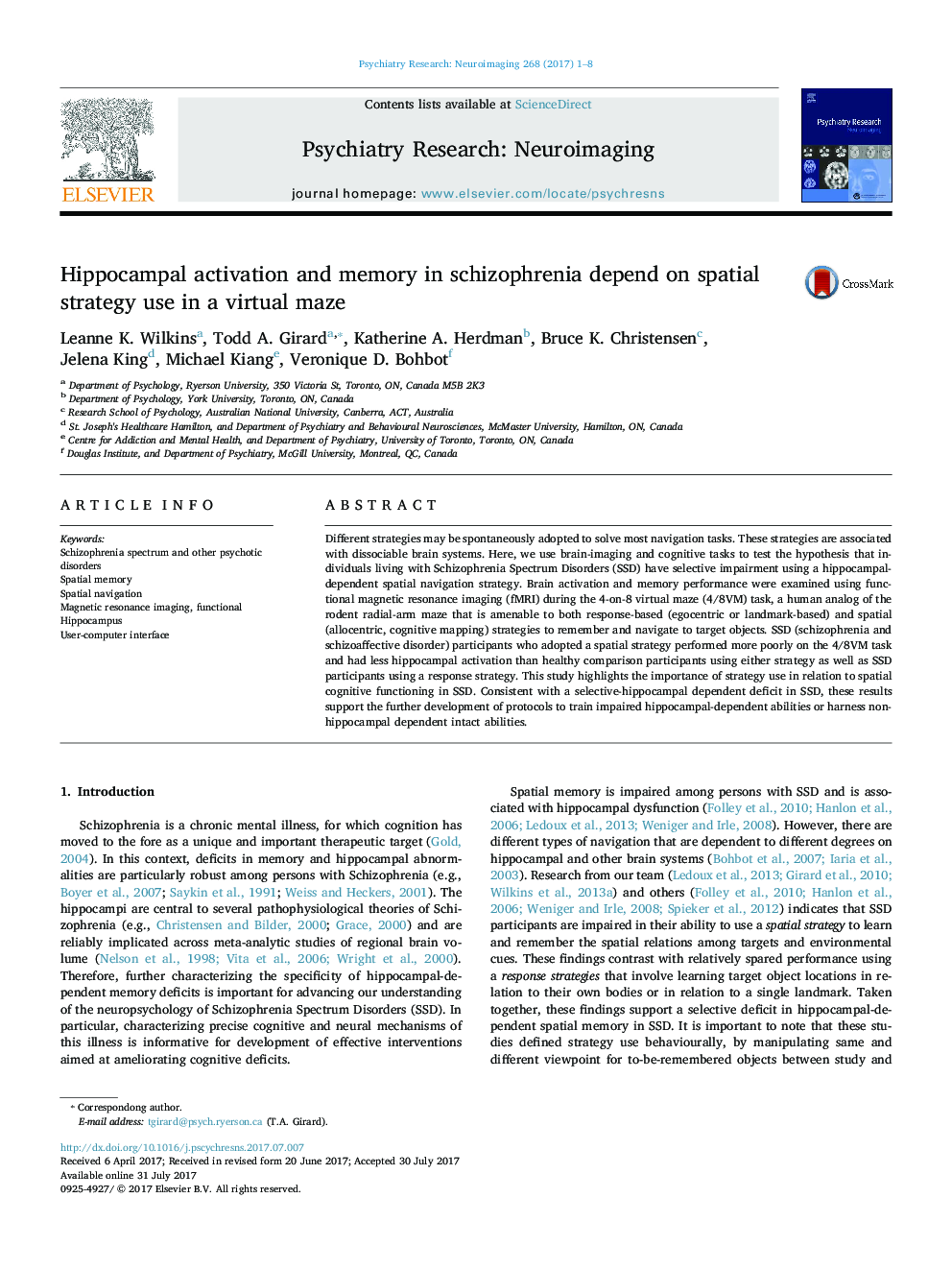| Article ID | Journal | Published Year | Pages | File Type |
|---|---|---|---|---|
| 4933883 | Psychiatry Research: Neuroimaging | 2017 | 8 Pages |
Abstract
Different strategies may be spontaneously adopted to solve most navigation tasks. These strategies are associated with dissociable brain systems. Here, we use brain-imaging and cognitive tasks to test the hypothesis that individuals living with Schizophrenia Spectrum Disorders (SSD) have selective impairment using a hippocampal-dependent spatial navigation strategy. Brain activation and memory performance were examined using functional magnetic resonance imaging (fMRI) during the 4-on-8 virtual maze (4/8VM) task, a human analog of the rodent radial-arm maze that is amenable to both response-based (egocentric or landmark-based) and spatial (allocentric, cognitive mapping) strategies to remember and navigate to target objects. SSD (schizophrenia and schizoaffective disorder) participants who adopted a spatial strategy performed more poorly on the 4/8VM task and had less hippocampal activation than healthy comparison participants using either strategy as well as SSD participants using a response strategy. This study highlights the importance of strategy use in relation to spatial cognitive functioning in SSD. Consistent with a selective-hippocampal dependent deficit in SSD, these results support the further development of protocols to train impaired hippocampal-dependent abilities or harness non-hippocampal dependent intact abilities.
Keywords
Related Topics
Life Sciences
Neuroscience
Biological Psychiatry
Authors
Leanne K. Wilkins, Todd A. Girard, Katherine A. Herdman, Bruce K. Christensen, Jelena King, Michael Kiang, Veronique D. Bohbot,
